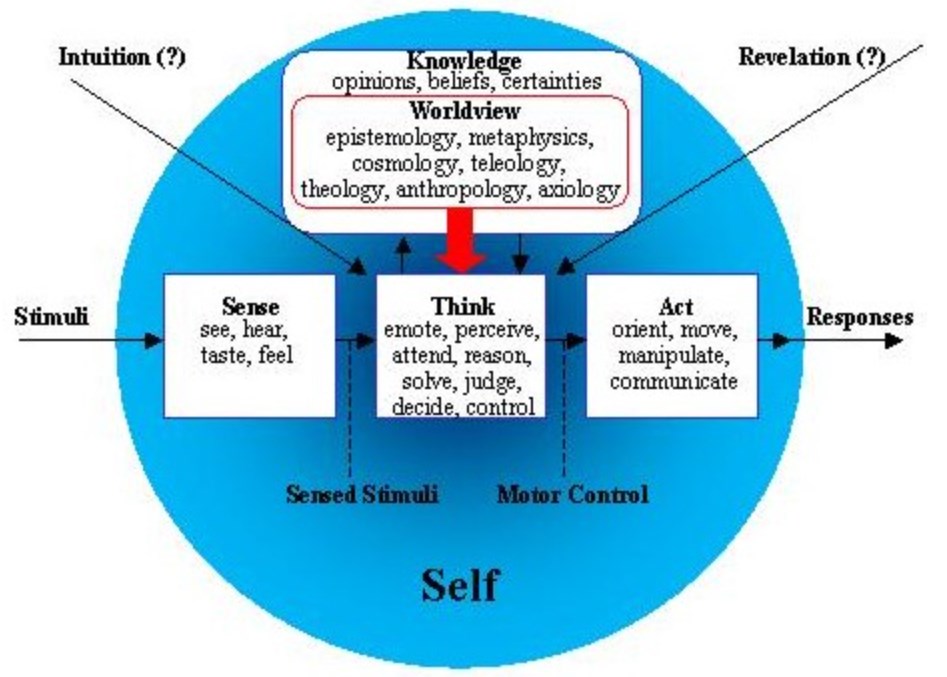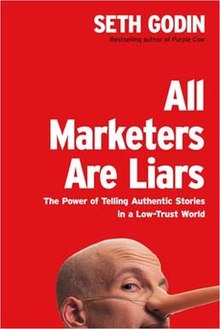Category: Marketing
(24 von 100)
Why: I need to understand what Marketing is all about.
Goal: become a marketer that tells valuable stories.
Action: Tell a Story That Empowers Beliefs.
3 Key Concepts
- Marketers are not in control.
- People act with their worldview.
- First impression starts the story.
Summary
This book inspired me to learn about human psychology from stimuli to responses. I felt that Seth has conveyed how marketers guide the process of human thinking, by giving them the right stimuli. Stimuli/Stories that support their worldview.
I will show you below what the worldview means. Because if you are like me, this is gonna be your first time to hear about worldview and other differences between beliefs.
Marketers are not in control. Marketers tell stories to make an initial point, the rest of the convincing is done by consumers.
- Marketer tells a story that captures consumer’s attention.
- Consumer predicts what happens next.
- Consumer rationalizes anything that doesn’t match their prediction.
More on “why?” in worldview section.
People act with their worldview. Below I explain how worldview influences our perception, and in the end effect our responses ‘Buying‘.
Note: changing our own worldview is difficult, you’ll see why soon.
What is Worldview?
Worldview is the set of beliefs about Reality.
Reality comprises of Sense, (Think, Knowledge (Worldview)), Act.
Here are 7 beliefs that influence our Reality (perception part).
- Epistemology: belief about nature and source of knowledge.
- Metaphysics: belief about ultimate nature of reality itself.
- Cosmology: belief about origins of universe, life, and Man.
- Teleology: belief about meaning and purpose of universe; its inanimate elements and inhabitants.
- Theology: belief about existence and nature of God.
- Anthropology: belief about nature and purpose of human life and culture.
- Axiology: belief about nature of value; good or bad, right or wrong.

Credit: “What is a Worldview?” by Ken Funk, Oregon State University.
The first impression starts the story. With that, consumers make a quick and permanent judgment.
Customers (all humans basically) predict and rationalize a story to validate their worldview. When the story is inconsistent with your worldview, you experience a Cognitive Dissonance. It refers to a situation involving conflicting attitudes, beliefs, or behaviors. This produces mental discomfort.
To reduce this discomfort and restore beliefs, we do whatever to prove that our initial assertion is right.
Once we’ve made up our mind, we ignore contrary data for as long as we can get away with it.
The origin of Stubbornness.
As the result, our brain doesn’t compare all features, rather notices only new features as a discovery. Then we make guesses based on that. And tries its best to defend the idea that supports our beliefs.
To sum up, marketers should tell stories that people already want to believe in.
The fact that we live in a world where people buy on ‘Want‘ rather than ‘Need‘. The story should reflect their beliefs and view of the world, rather than product qualities and specs.
Recap, how brains process information.
- Look for difference: not new, we ignore it.
- Look for causation: once we pay attention, brains set out to explain it.
- Predict what happens next.
- Rely on cognitive dissonance to restore one’s worldview and response (buy!).
Goal check: I learned what kind of market is telling useful stories.
Wasu’s Review
( 5.0 / 5.0 )
Get this book on Amazon here!
Bonus: Authenticity thrives because in order for ideas to spread by people telling people. The story itself must pass the test of human thinking and reasoning.
Liars always fail human test.


Having read this I believed it was really informative. I appreciate you taking the time and effort to put this article together. I once again find myself spending way too much time both reading and posting comments. But so what, it was still worth it!